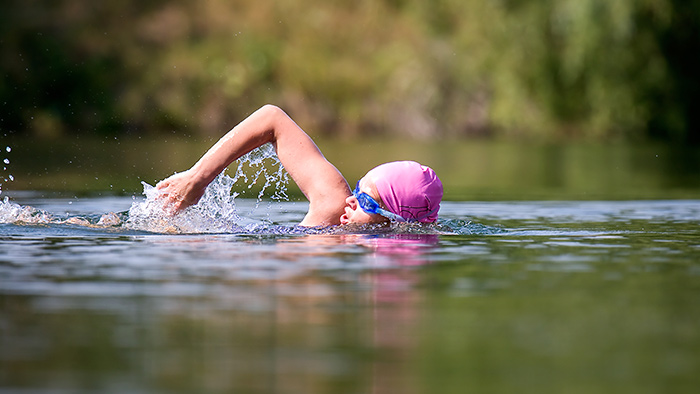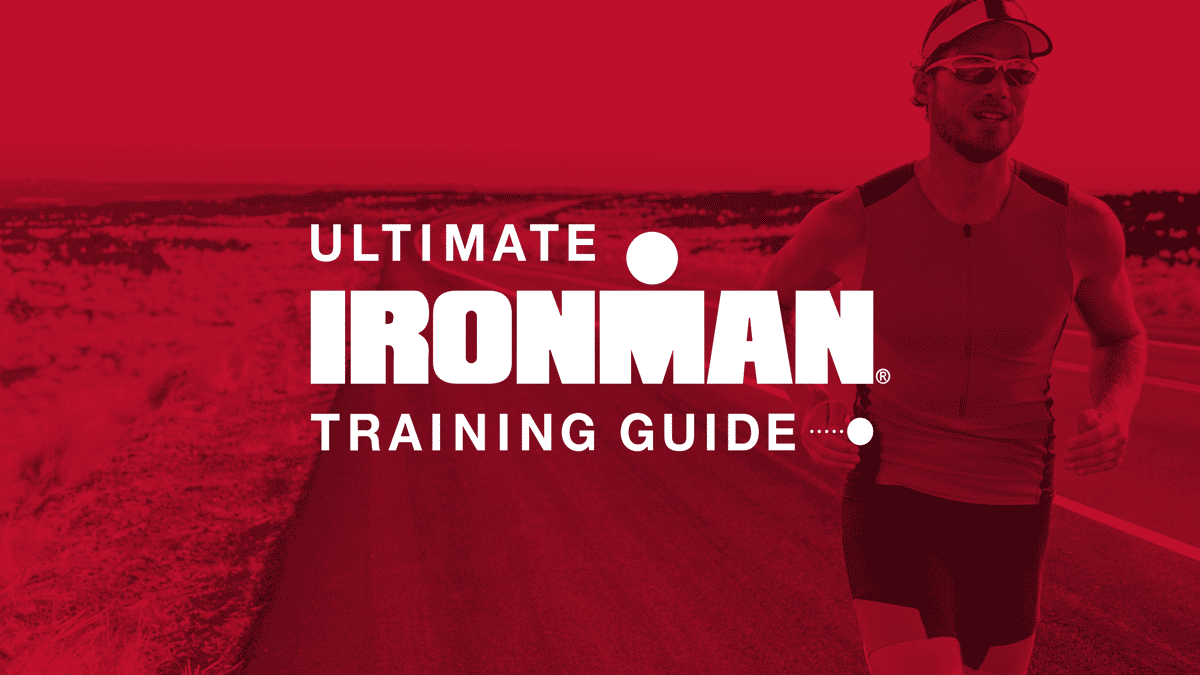One of the biggest challenges that I hear from my athletes is always needing more time in the day, followed closely by questions about how to “balance” life with work, family and triathlon training. These are common pain points that triathletes of all levels deal with—so what are the answers?
We all have the same 1,440 minutes a day, so when you see other athletes, who may be business owners, entrepreneurs, doctors, lawyers, parents, etc., who are still crushing their workouts, sometimes you may think, “How do they manage that? Is there a secret sauce?”
As a coach, and one who has coached these types of athletes, I don’t think there is a “secret sauce,” but what I can tell you is that a lot of them have the same determination and the belief that they are chasing a better version of themselves. That is their North Star, and it keeps them going even when their schedules get very demanding or out of their control (and this happens to everyone).
When I put together workouts for these athletes, it is truly like a big Sudoku puzzle around their busy schedules. But I know that they have big goals and are willing to work hard for them. For my part, I know that I have to make sure that I understand their lives beyond triathlon (yes, there is life beyond triathlon) so we can work together to find a balance of performance and fun.
So, with this in mind, I want to give you my five hacks for finding balance in your own lives so you can make room for training, work, family, and whatever 1,000 other things you have going on:
1. A rest Day = A rest day
A rest day is a complete rest day, especially if you are getting ready for a long distance race. Put the feet up. Binge watch something on Netflix and enjoy the downtime. This means you shouldn’t mow the lawn, sneak in a long walk or wash your car. You should rest!
A rest day is where they body repairs itself along with rebuilding the immune system. If we don’t take full advantage of it, it maybe a little bit harder to get motivated for the next day, and eventually you won’t see the gains you want.
If an athlete has kiddos, maybe taking a weekend day off is better since the kids have swim lessons, baseball, track, etc. During that day you (the athlete) are driving the kids around and going back and forth. Maybe you’re not eating like you should and by the end of the day, you are completely exhausted. Then you have to get ready for your long bike the next day and you’re truly spent.
Tip: Look at when your day off is. Is there a better day off for you where you can truly take at least 18 hours of not doing much? For example, if you have kids and the weekends are PACKED, then maybe take Monday off. If you have Monday already off and it is not working, change it! Talk to your coach!
2. Plan your workouts with the family calendar
The best tool on your phone is either the iCal or Google Calendar. You can organize your schedule (work, training, etc.) with your family’s schedule. Bring the family together and help eachother instead of getting frustrated at the schedule. We all have full schedules ranging from the kids to the job to the spouses.
Here is how I suggest you break your calendar down to make it a bit easier for you and the family:
- Make sure you put in the events/appointments that can’t be moved first (for example: work, spouse’s work, date night and kid’s events.)
- Put in your workouts that you MUST do and they should not be moved (for example: long bike, long run, long swim).
- Put in the workouts that are group workouts (for example: Masters swim, track workout, spin class).
- Last but not least, put in the events that can be flexible (Mow the lawn, grocery store, laundry, etc.)
Tip: On the calendar, everyone has a specific color to see who is doing what. Everyone is connected to their phones these days and this will be an easy fix to connect with the family.
3. Pick a Race. Involve the family. Make it a “race-cation.”
Triathlon is a selfish sport. Yes, I said it, but I think we all know that. Instead of getting the family frustrated about triathlon and how it has changed your life, get them involved.
Pick a race that works with everyone’s schedule, not just your schedule but the family’s. Pick a race with the family. Show them a couple of options and find out what is available for what they can do at the race. For example, IRONMAN Mont Tremblant is a very family friendly race and everything is close by for the family.
Look beyond race day. Is there an opportunity to go explore with the family after the race? Another example, IRONMAN 70.3 Coeur d’Alene is a perfect opportunity to head over to Glacier National Park post-race to explore one of the most beautiful parks in the United States.
Tip: Get the family involved from picking the race, to involving them in the race as volunteers or doing the IronKids run and finding out what is available to visit beyond the race venue.
4. Hire people to help you out (at home, at work … and a coach!)
During the heavy long course triathlon training, doing every day chores can really take a toll on you. Sure, you could ask the spouse or the kids to help but as you know, they are probably getting tired.
Treat yourself by hiring someone to either clean the house, mow the lawn or take your laundry to a wash and fold. You spend top dollars on your bike, clothing and nutrition for your long course triathlon training—spending a few extra dollars to help you with your sanity will help.
Above all, understand that being an athlete/parent/attorney/whatever means you’ll always have to put a few things further down the list of priorities. And that’s how you truly find balance.
Another hire that you should look at doing if you haven’t already is hiring a coach for your long course triathlon race. What will these coaches do? To put it simply, they’ll take the guesswork out of your weeks.They will organize your workouts for your lifestyle and family time. They will keep you accountable and they will call you out if you are not getting the workouts done.
Tip: Head over to Angie’s List or Nextdoor to ask who can help you at home. Head to TrainingPeaks and check out the many amazing coaches out there to help you achieve your goals.
5. Listen to your body
Last but not least, listening to your body is crucial when it comes to your training. You truly need to figure out what is going on physically and mentally, as triathlon training can put a toll on your body, especially the long course training.
As a triathlete, we tend to stick to our ways with training. Like clockwork, you go to Masters swimming, every M/W/F and head out for a group ride on Saturday. Until life happens, the spouse is out of town and you have to take your kids to practice and suddenly you realize you’ll have to miss several of your regular workouts. That’s okay.
Take some time to regroup and adjust your training schedule until things calm down. Move your bike to later in the day, when you feel rested and have some good food in you.Your body will thank you for it.
Another way to determine if you are “tired” or that you are dealing with keep an eye out with your heart rate or if you track your HRV, it can really help with the whole idea if you are really tired or just mentally tired. Remember, as we get older and as we get closer to our races, it is all about quality over quantity.
Tip: It is ok to listen to your body, you know your body way better than your family, and your coach. Let them know that you need to take a couple of hours to Control/Alt/Delete.
As you are heading into your triathlon training season for the year, plan everything out on the calendar, with the family and with your coach. I promise you, the family will have a better idea of what you need physically and mentally, your coach will have a better idea of what you need to do with the family and YOU will be in a much more relax state of mine heading into your 2018 Triathlon Season.



